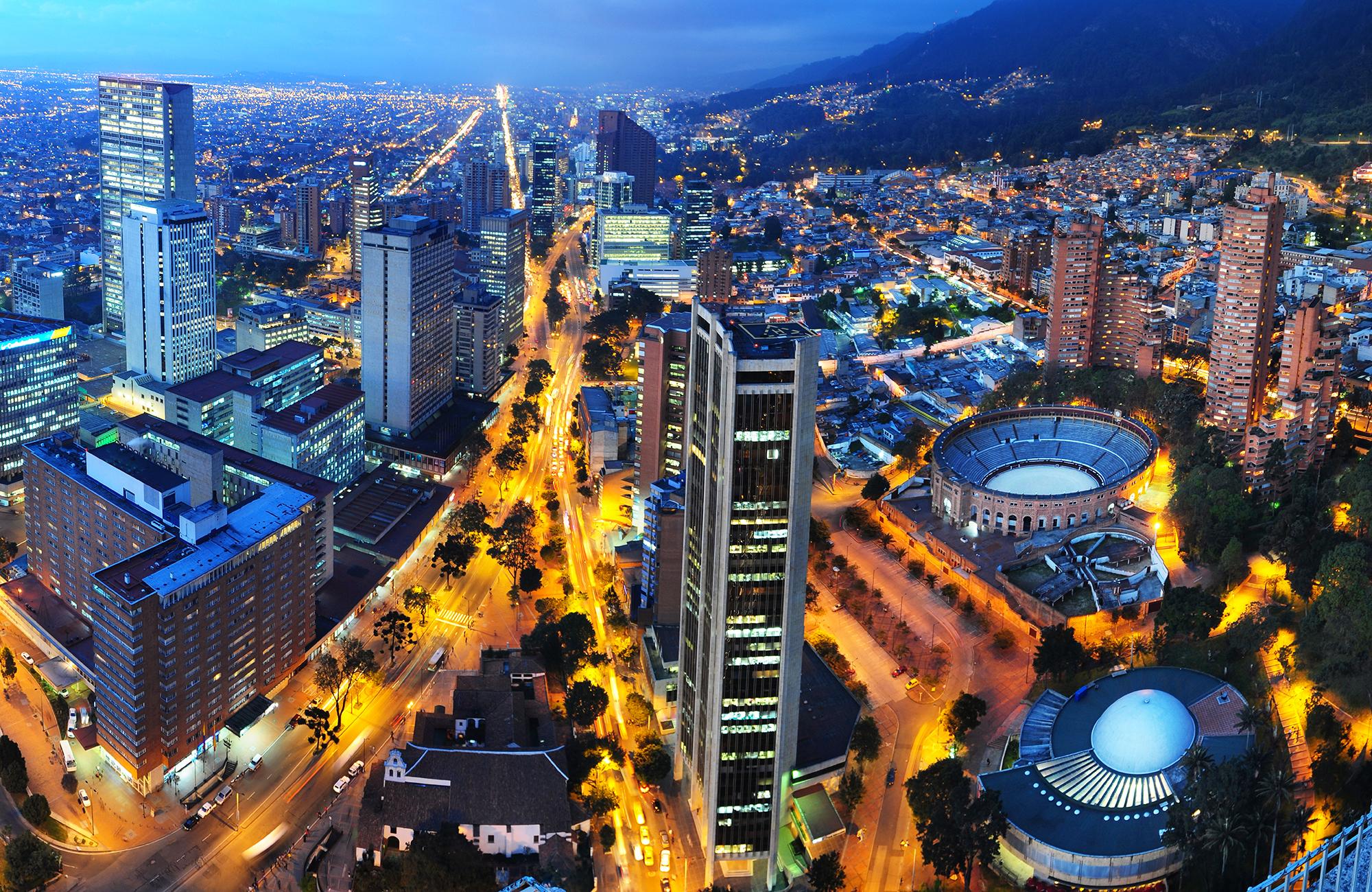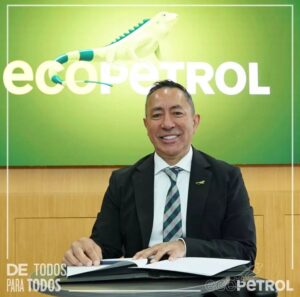
(NewsWeek, 25.Apr.2023) — As a multinational conference commences in Colombia, Venezuela is looking to make progress in talks not only with the country’s political opposition, but also the United States, three years after Washington backed efforts to oust President Nicolás Maduro, Newsweek has learned.
This includes a proposed deal that could bring home U.S. nationals detained in the South American nation.
The summit, which begins Tuesday in Bogotá under the auspices of President Gustavo Petro, the first-ever leftist leader of Colombia, is set to bring together officials from around 20 nations. It is expected to mark the latest opportunity to advance deadlocked negotiations between Maduro and a divided opposition that has failed to unseat the socialist head of state despite support from the U.S. and a number of other foreign countries.
With Maduro still firmly in control after 10 years in power, Venezuela has managed to mend key regional relations, including with neighboring Colombia and Brazil, which also saw a left-wing leader take office this year. And now, with Petro providing a platform, Caracas sees an opportunity for a breakthrough with Washington.
A Venezuelan official speaking with Newsweek said that the government “is grateful for the support of Colombian President Petro, without whom this new initiative would not have been possible.”
“We hope that all parties come to the conference with a commitment to engage in positive dialogue and a desire to end unilateral sanctions, explore genuine ways to move forward and achieve progress,” the official added.
In addition to sanctions relief, a deal to release U.S. prisoners is also on the list of Venezuela’s priorities going into the talks in Colombia.
“The Venezuelan government has made it clear to the U.S. government its position on a prisoner swap,” the Venezuelan official said. “It is logical that our offer will be a subject of discussion at the upcoming conference in Bogota. Venezuela is waiting for a response from the American side on that offer.”
U.S. President Joe Biden has previously made successful overtures to Maduro despite a lack of official ties between their administrations. Days after the U.S. sent a delegation to the oil-rich nation in March of last year in the wake of Russia launching its war in Ukraine, Venezuela released two U.S. nationals, including an executive of oil giant Citgo, which is owned by Venezuela’s state-run petroleum company.
Then, in October, Biden conducted the largest prisoner swap of his presidency with Venezuela. The agreement resulted in the release of seven U.S. citizens, including five more Citgo employees, as well as a former U.S. Marine corporal and a University of Central Florida graduate, in exchange for two nephews of Maduro’s wife.
The following month, the U.S. announced a six-month easing of sanctions allowing the U.S. Chevron Corporation to resume oil production coinciding with talks held in November between representatives of the Venezuelan government and opposition in Mexico City.
A number of U.S. citizens remain imprisoned in Venezuela, however, including Salvadoran American lawyer Eyvin Hernandez, who was arrested on accusations of attempting to illegally enter the country via Colombia on March 31. In October, the U.S. State Department declared him “wrongfully detained” and has sought his release, as have family members who have also argued he was innocent.
In late February, Newsweek reported on a letter addressed to Biden in which Hernandez revealed what he said was a viable deal that could see him and at least three other U.S. nationals set free.
The deal would entail the release of Alex Saab, a Colombian businessman acting as special envoy for Venezuela. On June 12, 2020, while on transit from Venezuela to Iran on what the Maduro administration called a diplomatic and humanitarian mission, Saab was arrested by local authorities in Cape Verde and extradited to the U.S. to face bribery charges linked to an alleged money laundering scheme denied by both him and Maduro.
Speaking to Newsweek on the eve of the gathering in Colombia, a source in the campaign advocating for Hernandez’s freedom “called on the Biden administration to de-link its effort to free Hernandez from all geopolitical considerations and to use all options at its disposal to free the American including a prisoner exchange.”
Reached for comment, a State Department spokesperson told Newsweek that “the U.S. Government continues to work aggressively to bring home all U.S. nationals wrongfully detained or held captive abroad and to prevent and deter future hostage-takings and wrongful detentions.”
The State Department spokesperson called these “top priorities for the President and the Secretary of State,” who the spokesperson cited as being “personally focused on bringing home U.S. nationals held hostage or wrongfully detained abroad.”
“We continue to press for the immediate and unconditional release of all wrongfully detained U.S. nationals in Venezuela at every opportunity and will continue to do so,” the State Department spokesperson added. “Beyond that, we are not going to discuss ongoing diplomatic conversations or negotiations.”
A spokesperson for the White House National Security Council (NSC) also weighed in, telling Newsweek that “the Biden-Harris Administration will keep fighting to bring home all wrongfully detained U.S. nationals.”
“The President and Secretary of State lead a robust team of U.S. Government officials who work in partnership with families to secure the release of U.S. nationals who have been wrongfully detained or taken hostage abroad,” the NSC spokesperson added.
Noting the administration’s lasting “commitment to bringing home U.S. nationals who are or have been subject to wrongful detention in Venezuela, including bringing home nine of them in 2022,” the NSC spokesperson said, “We urge the immediate release of those Americans currently wrongfully detained in Venezuela.”
But the White House made a distinction between this effort and the goals of the summit being held in Bogotá, as the NSC spokesperson said that “the conversations at the conference are about bringing about a return to democracy in Venezuela, and U.S. detainee negotiations remain separate.”
The White House did, however, leave the door open for a further easing of sanctions, something for which both Venezuelan opposition representatives and Petro have also recently called. The Colombian leader reiterated this position during his visit to the White House on Thursday.
“We have long made clear that we would review our sanctions policies if the Maduro regime takes concrete and constructive steps to return to democracy, which would include Venezuelan parties making meaningful progress,” the NSC spokesperson said. “That remains the case.”
The State Department spokesperson offered an identical response to the potential for sanctions relief but added that the Biden administration was also “not afraid to take action should the Maduro regime fail to negotiate in good faith or follow through on its commitments.”
Relations between the U.S. and Venezuela have been tense since Maduro’s predecessor, United Socialist Party leader Hugo Chávez, first took power in 1999. Three years into his tenure, Chávez survived a 2002 coup attempt he alleged had ties to Washington and he would then go on to lead the country for 11 more years until his death from cancer in 2013.
Maduro then took office just as Venezuela underwent a sharp economic downturn exacerbated by falling oil prices and U.S. sanctions that were intensified under the administration of President Donald Trump, who also tightened pressure on fellow leftist-led Cuba and Nicaragua.
As a political opposition then headed by National Assembly leader Juan Guaidó accused Maduro of election fraud in winning his second term, the U.S. and dozens of its regional and international partners severed ties with the Venezuelan leader in January 2019. Months later, in late April, the U.S. backed an attempt by Guaidó to seize power through an uprising, but the bid was ultimately thwarted as key figures remained loyal to Maduro’s government, which was also backed by dozens of nations, including China, Russia and Iran.
The opposition, still recognized by the U.S. as the legitimate representative of Venezuela, has since struggled to regain momentum. In December, three of the main parties voted to dissolve the interim government in favor of adopting a joint strategy for challenging Maduro in the next presidential election set to be held sometime next year.
Guaidó, who said in a statement Monday that he had traveled to Colombia ahead of the conference, is among those who have declared their intention to run for the opposition primary, scheduled for October 22. The Popular Will party leader is joined by at least two other prominent opposition figures, Henrique Capriles of Justice First and Maria Corina Machado of Come Venezuela.
Newsweek has reached out via email to the Venezuelan opposition’s representative in Washington, D.C., for comment.
The State Department spokesperson with whom Newsweek spoke said that U.S. officials “continue to work with the international community to support a comprehensive negotiated solution to the Venezuelan crisis” and “welcome Colombia’s initiative convening partners to support the Venezuelan-led negotiations process in Mexico toward free and fair elections in 2024.”
“We remain steadfast in our commitment to the Venezuelan people, which includes support for their democratic aspirations and assistance to address Venezuela’s humanitarian crisis with a broad coalition of partners,” the State Department spokesperson said. “We will continue our efforts to help Venezuela move toward the restoration of democracy.”
“Meeting with the international community represents an opportunity to reiterate our position that sanctions relief and international legitimacy will not come without significant democratic and human rights reforms that lead to free and fair elections in 2024,” the spokesperson added.
Also among the key issues at stake when government and opposition representatives resume talks will be the status of Venezuelan prisoners jailed for offenses that critics have deemed politically motivated.
Asked about potential progress on this front, the Venezuelan official with whom Newsweek spoke said that “Venezuela has stated its willingness to review all reasonable proposals so long as the long-term stability of the nation and the well-being of the Venezuelan people are not impacted in a negative manner.”
____________________
By Tom O’Connor

